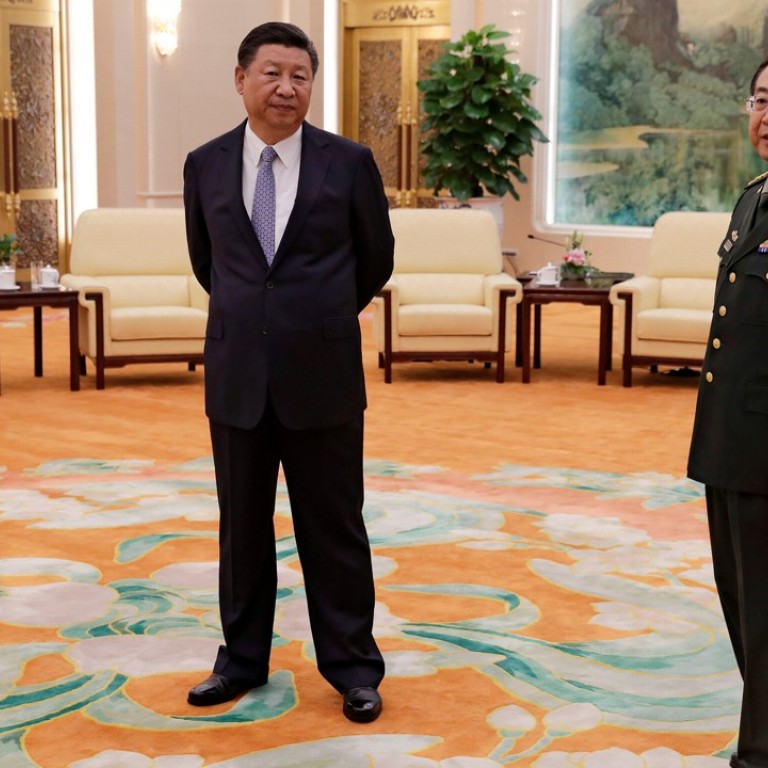
Xi Jinping clears decks for top-level changes to China’s military
Party congress expected to usher in major changes at body that controls People’s Liberation Army
China’s ongoing military leadership reshuffle, which has seen two heavyweights in the powerful Central Military Commission (CMC) lose their commands in the past month, will help President Xi Jinping shake up the body, which controls the People’s Liberation Army (PLA), and increase his dominance of it, analysts said.
The ousting of General Fang Fenghui, former head of the CMC’s Joint Staff Department, and General Zhang Yang, former head of the commission’s Political Work Department, from the functional posts that gave them CMC membership is further proof that Xi, who also chairs the CMC, is cementing his control over the military.
In late August, the Ministry of National Defence revealed that General Li Zuocheng, a decorated veteran of the Sino-Vietnamese war, had replaced Fang as chief of the Joint Staff Department. Then, on September 8, the army mouthpiece PLA Daily carried a report referring to Admiral Miao Hua, formerly the PLA Navy’s political commissar, as head of the Political Work Department.
Xi promoted Li to full general and Miao to the equivalent naval rank in 2015 and both men are seen as being firmly in his camp.
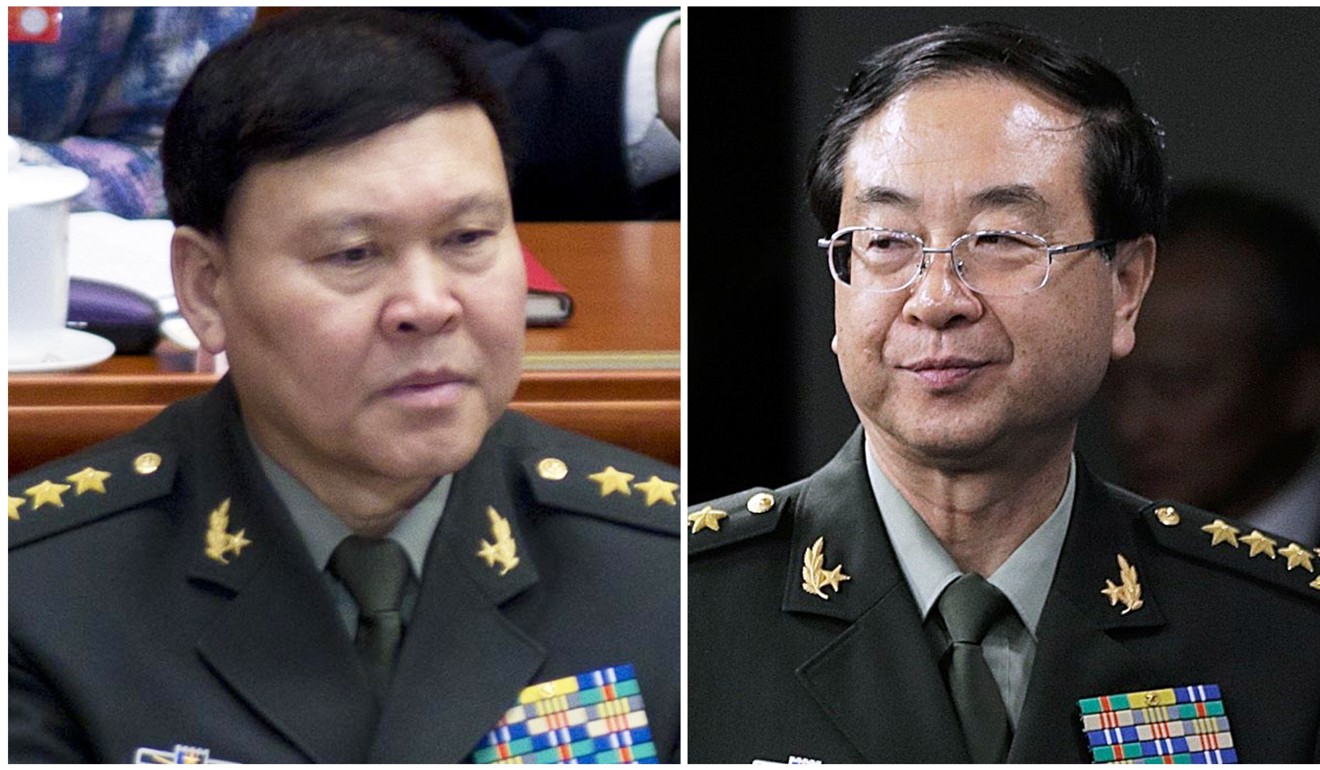
Fang and Zhang were also left off the list of members of the military delegation to next month’s five-yearly Communist Party congress, while Li and Miao will be among those in attendance.
“The CMC’s Joint Staff Department head is the man who oversees the PLA’s battle operations, while the Political Work Department chief takes care of ideological education,” a Beijing-based retired senior colonel, who asked not to be named, said.
“Xi can only implement reforms when he really controls both the barrel of the gun and the pen, so he should assign men he trusts to the two important jobs,” he said.
In an unprecedented military overhaul launched in 2015, Xi announced that the PLA, the world’s biggest army, would shed 300,000 troops, taking their number down to two million. He also scrapped the PLA’s four former headquarters – General Staff, General Political, General Logistics and General Armaments – and established 15 functional departments to divide their powers. The PLA’s seven military commands were also reshaped into five theatre commands.
Sources close to the military told the South China Morning Post that Xi would use the party congress, due to open on October 18, to restructure the CMC.
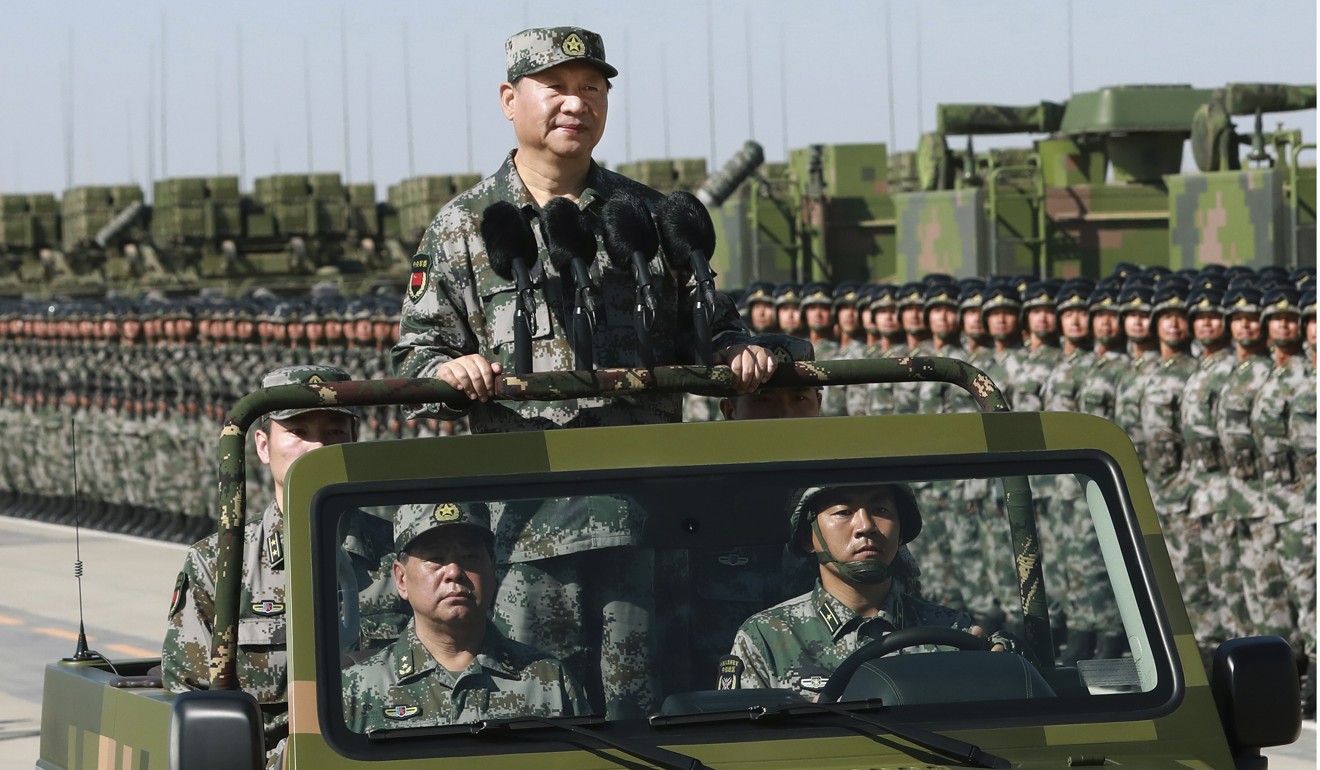
Several scenarios are being discussed in military circles, including one version that would see the 11-member CMC trimmed to just the chairman and four vice-chairmen. Another would give the commanders of the five theatre commands CMC membership, along with two to four vice-chairman, but not include the chiefs of the land force, air force, navy, rocket force and strategic support force.
The current CMC comprises one chairman, two vice-chairmen, and eight regular members: the defence minister, the heads of the four former headquarters, and the commanders of the air force, navy and rocket force.
Defence Minister General Chang Wanquan, 68, is expected to retire at the annual meeting of the National People’s Congress early next year due to his age, while the other seven regular members have all seen younger generals assume the functional titles that gave them CMC membership. However, they all remain members of the commission, at least for now.
“There is also a third plan, to expand the CMC membership by allowing the commanders of the ground force, air force, navy, rocket force and the five theatre commands to join, as well as two to three vice-chairmen,” one source said. “Whatever option is chosen, the first thing Xi will do is to root out the harmful influence left by the two disgraced CMC vice-chairmen, Guo Boxiong and Xu Caihou.”
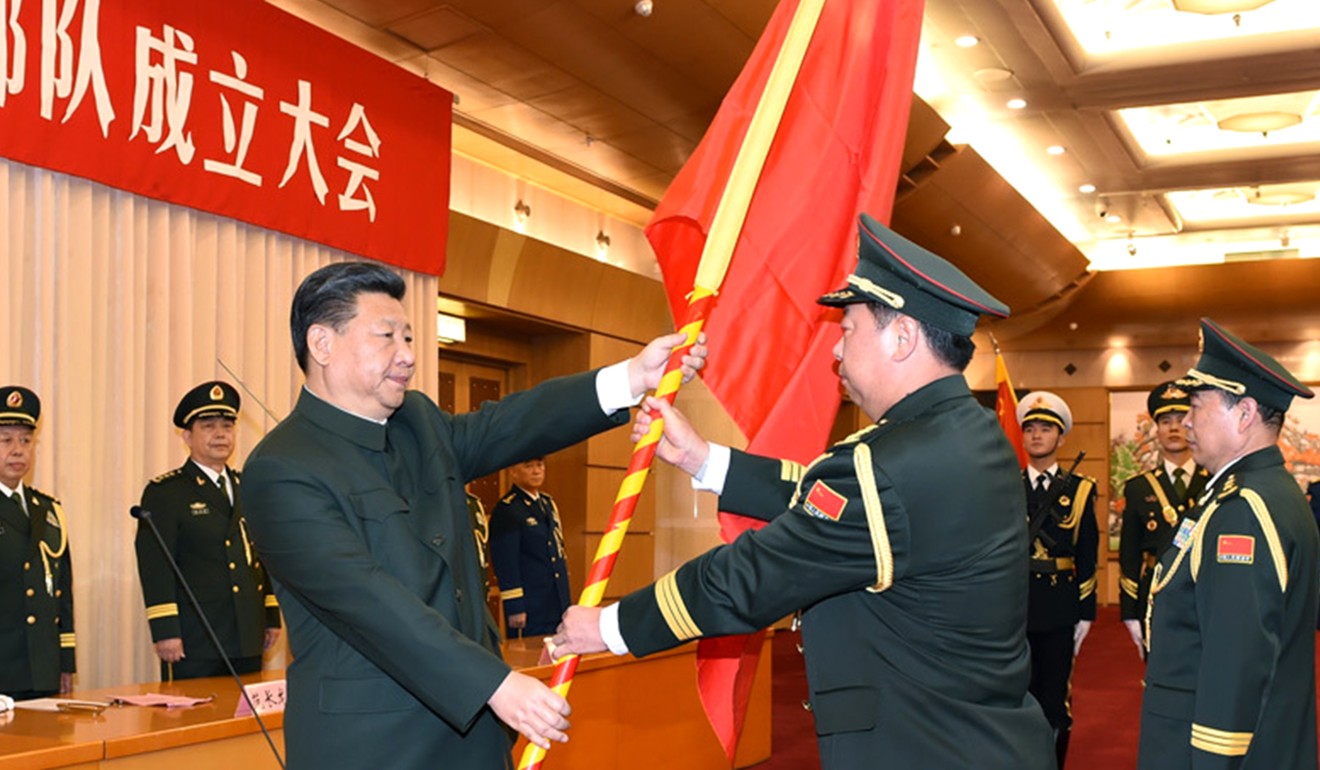
Guo and Xu became the most senior military officers probed for buying and selling military ranks and other forms of corruption in the sweeping anti-graft campaign launched by Xi soon after he became party general secretary in November 2012. Since then, at least 13,000 military officers involved in corruption have been punished, PLA Daily reported this month.
Guo, 75, was sentenced to life imprisonment in July last year and Xu died of cancer at the age of 72 in 2015 while in custody and under investigation for graft.
Several sources close to the army told the Post that both Fang and Zhang had also been taken away by the CMC’s Discipline Inspection Commission on the same day and were now facing corruption investigations.
“As a Shaanxi native and distant relative of Guo, Fang was cultivated by the former CMC vice-chairman, while Zhang came from Xu’s camp. The two quickly veered to Xi after realising their former bosses were targeted by him,” said a source close to former Guangzhou Military Command, which was merged into the Southern Theatre Command.
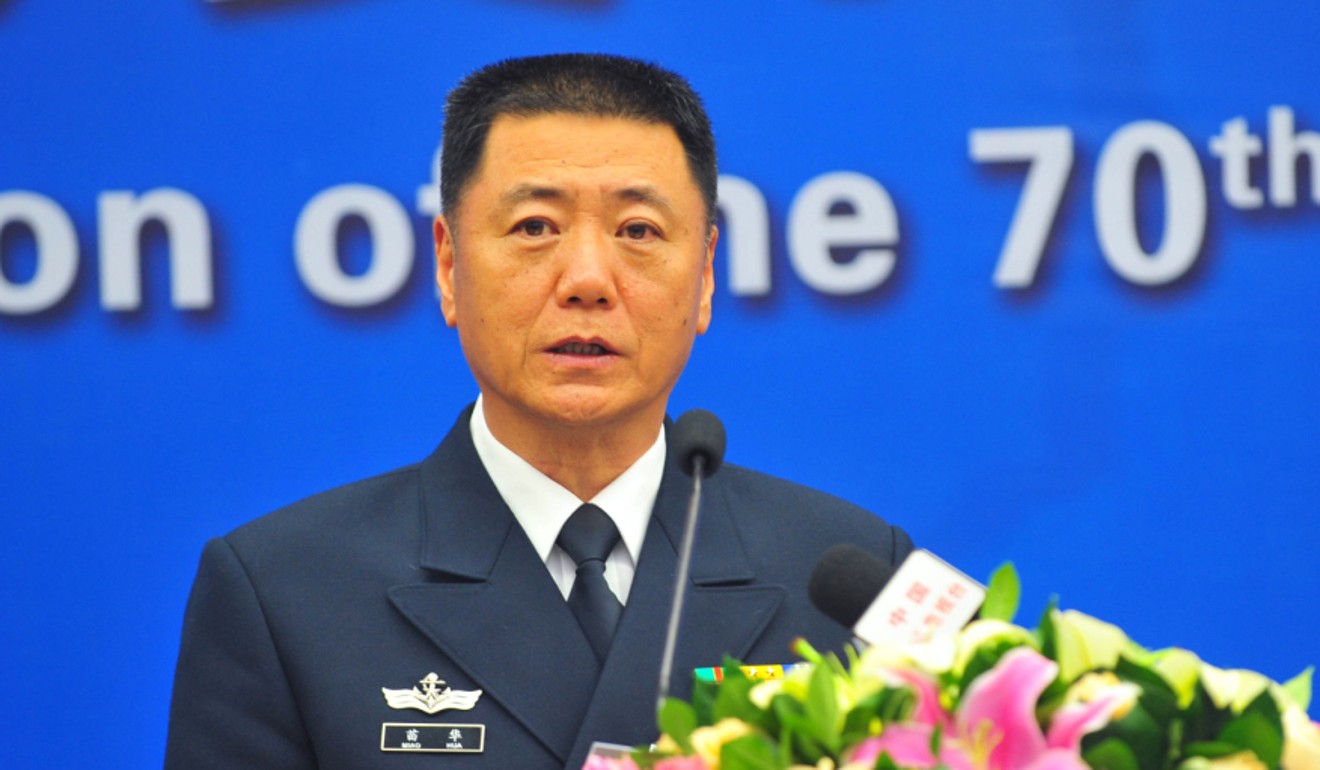
“The probe against Zhang also led to the [party’s] Central Discipline Inspection Commission sending more than 50 investigators to Guangzhou to question senior officers with ranks of division head or above on suspicion of giving bribes to Zhang.”
Xi served as a CMC vice-chairman alongside Guo and Xu for more than two years to November 2012. They annoyed him by taking over the army’s staff affairs, right from under the nose of Hu Jintao, his predecessor as party chief, and stacking the CMC with their supporters five years ago. The web of corruption they created expanded to every corner of the army, prompting Xi to declare a war to rid it of their harmful influence.
“Rooting out the harmful influence of Guo and Xu is one of the key reasons Xi needs to reform the CMC,” Beijing-based military expert Li Jie said. “The structure of the commission also needs to fit the ongoing military overhaul, with thousands of senior officers being laid off.”
The retired senior colonel said officers like Fang and Zhang had been kept on for the past five years as “transitional leaders” because Xi needed them to support the ongoing miliary reform before younger generals like Li and Miao were experienced enough to take over the top positions.
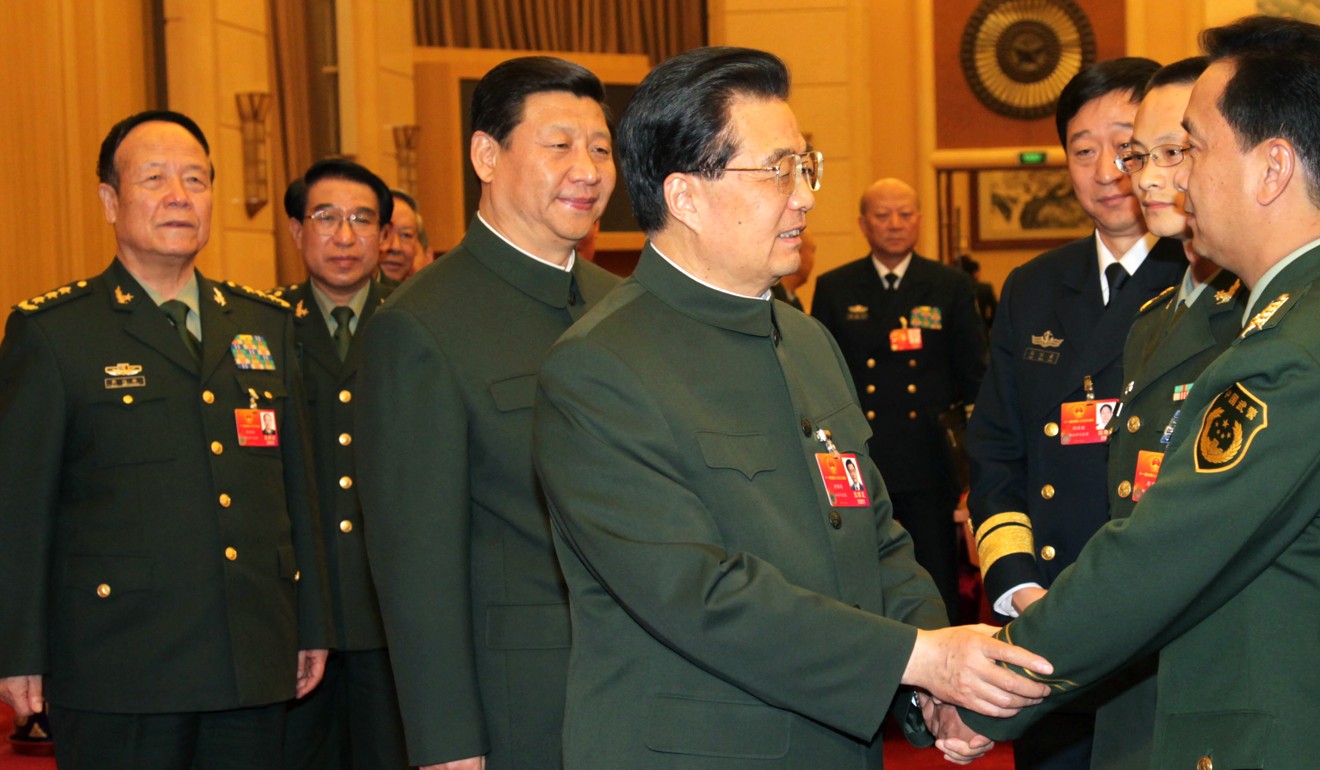
“All senior military officers need a certain process to train and gain experience,” he said “From a frontline post like division head, then commander of a local troop and army corps, as well as a theatre command, otherwise, he can’t have the comprehensive military skills and strategic vision to master a top position in the CMC.”
Li, 63, was promoted to commander of the former Chengdu Military Command in 2013. Last year, he was further promoted to head the land force, which was established in January last year. Miao, a political officer who spent four years in the former Lanzhou Military Command, became the navy’s political commissar in late 2014.
Shanghai-based political commentator Chen Daoyin said Xi was intent on reforming the CMC to strengthen his hand against those in the party opposed to his new political thinking.
“Xi hopes his political ideas will be in included in the party constitution at the upcoming congress, like those of his predecessors Mao Zedong, Deng Xiaoping, Jiang Zemin and Hu Jintao, and become part of the party’s political guidelines, but it seems there are some different voices inside the party against him,” Chen said.
“The removal of Fang and Zhang and reform of the CMC could remind his opponents that Xi has absolute dominance in the army, which helped put the Communist Party in power.”

